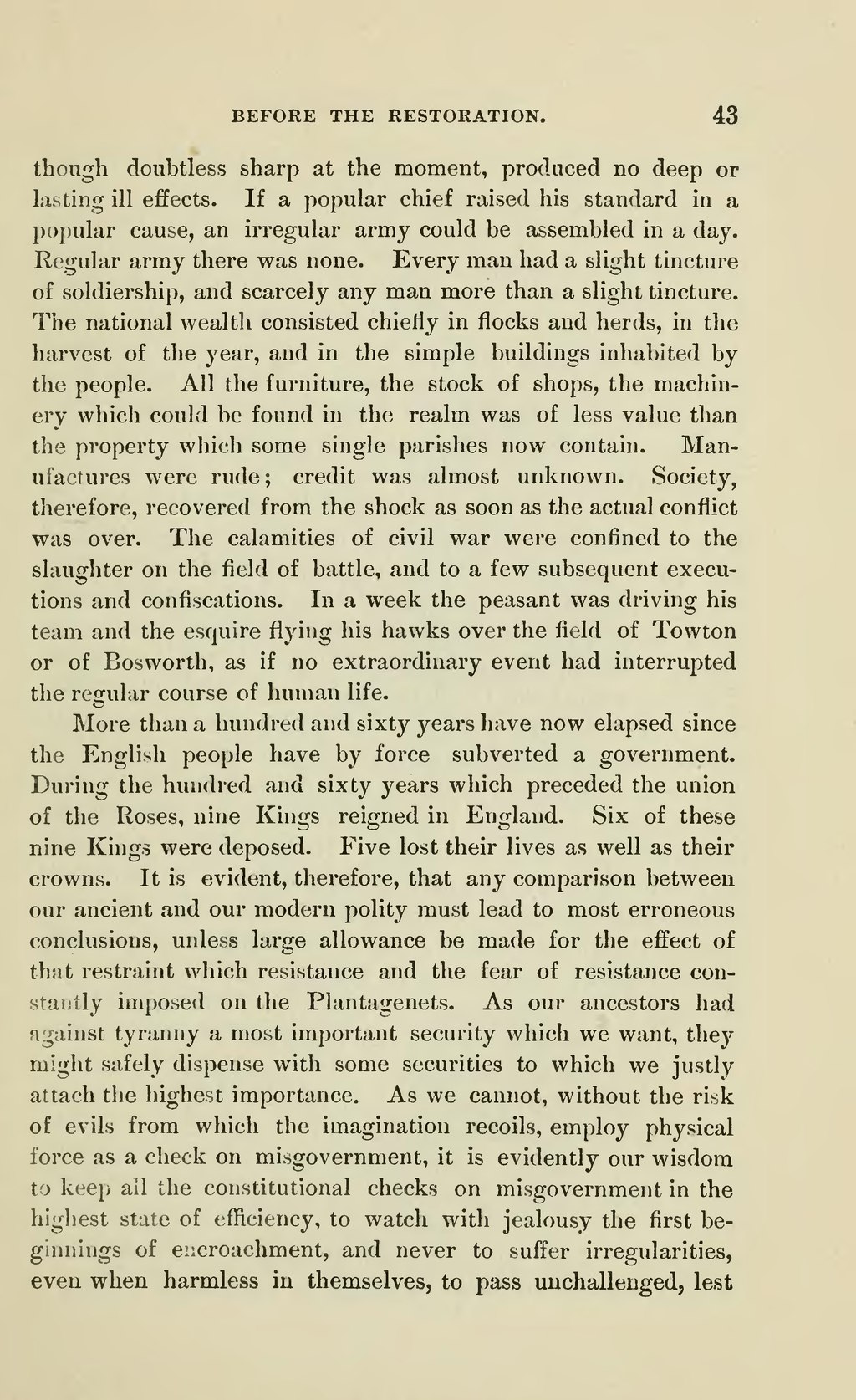though doubtless sharp at the moment, produced no deep or lasting ill effects. If a popular chief raised his standard in a popular cause, an irregular army could be assembled in a day. Regular army there was none. Every man had a slight tincture of soldiership, and scarcely any man more than a slight tincture. The national wealth consisted chiefly in flocks and herds, in the harvest of the year, and in the simple buildings inhabited by the people. All the furniture, the stock of shops, the machinery which could be found in the realm was of less value than the property which some single parishes now contain. Manufactures were rude; credit was almost unknown. Society, therefore, recovered from the shock as soon as the actual conflict was over. The calamities of civil war were confined to the slaughter on the field of battle, and to a few subsequent executions and confiscations. In a week the peasant was driving his team and the esquire flying his hawks over the field of Towton or of Bosworth, as if no extraordinary event had interrupted the regular course of human life.
More than a hundred and sixty years have now elapsed since the English people have by force subverted a government. During the hundred and sixty years which preceded the union of the Roses, nine Kings reigned in England. Six of these nine Kings were deposed. Five lost their lives as well as their crowns. It is evident, therefore, that any comparison between our ancient and our modern polity must lead to most erroneous conclusions, unless large allowance be made for the effect of that restraint which resistance and the fear of resistance constantly imposed on the Plantagenets. As our ancestors had against tyranny a most important security which we want, they might safely dispense with some securities to which we justly attach the highest importance. As we cannot, without the risk of evils from which the imagination recoils, employ physical force as a check on misgovernment, it is evidently our wisdom to keep all the constitutional checks on misgovernment in the highest state of efficiency, to watch with jealousy the first beginnings of encroachment, and never to suffer irregularities, even when harmless in themselves, to pass unchallenged, lest
